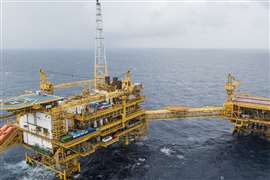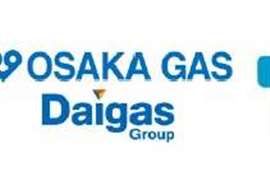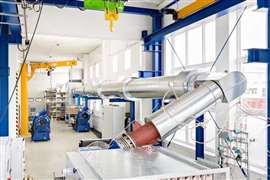Read this article in 中文 Français Deutsch Italiano Português Español
EU agrees on plan to phase out Russian natural gas imports by 2028
October 21, 2025
 The EU has agreed on a plan to phase out Russian natural gas imports by 2028. The new regulation sets a stepwise ban, requires national diversification plans and tighter monitoring of energy dependencies.
The EU has agreed on a plan to phase out Russian natural gas imports by 2028. The new regulation sets a stepwise ban, requires national diversification plans and tighter monitoring of energy dependencies.
The Council of the European Union has adopted its general approach to a new regulation that will phase out all Russian natural gas imports by 2028, marking one of the bloc’s most sweeping energy policy moves since the invasion of Ukraine.
The regulation — formally titled Phasing Out Russian Natural Gas Imports, Improving Monitoring of Potential Energy Dependencies and Amending Regulation (EU) 2017/1938 — was endorsed by EU energy ministers on October 20. It establishes a legal framework for banning imports of Russian gas and liquefied natural gas (LNG) and requires member states to plan how they will diversify supply and strengthen energy security.
Stepwise ban on Russian gas
Under the proposed regulation, imports of Russian natural gas via pipeline or LNG will be prohibited beginning January 1, 2028. Short-term supply contracts signed before June 17, 2025, may continue until June 2026, and long-term contracts concluded before that date will be permitted to run until the start of 2028.
The phase-out timeline allows importers to transition gradually to alternative sources while avoiding disruptions in supply. Exceptions are provided for landlocked member states still dependent on Russian gas due to limited infrastructure.
Once adopted by the European Parliament and Council, the regulation will take effect six weeks after publication in the Official Journal of the European Union.
Monitoring and enforcement
The regulation introduces strict verification and monitoring measures to prevent circumvention of the import ban. Importers will be required to obtain prior authorization and prove the country of production for all gas shipments. Authorities will have powers to inspect supply contracts and block imports if the origin cannot be confirmed.
Shipments entering the EU through Russia, Belarus or the TurkStream pipeline will automatically be presumed to originate in Russia unless proven otherwise. LNG cargoes that mix gas from different sources must disclose the share produced in Russia.
The European Commission and the Agency for the Cooperation of Energy Regulators (ACER) will coordinate information exchange between customs, regulatory, and national authorities, publishing annual progress reports on the gas phase-out.
Each EU member state that still imports Russian gas or oil must submit a national diversification plan by March 1, 2026. The plans will outline measures to secure new supply routes, expand renewable energy, and reduce gas demand.
The Commission may issue recommendations if a country’s plan appears insufficient to meet the 2028 deadline. Member states will report regularly to the EU’s Gas Coordination Group on implementation progress.
Energy security and transition
The regulation builds on the REPowerEU strategy, first launched in 2022, to end Europe’s dependence on Russian fossil fuels while accelerating the clean energy transition. EU analyses found that a coordinated, stepwise phase-out would have “limited impact on prices” and enhance long-term energy security.
Since 2022, the EU has already reduced Russian gas imports by more than 60 billion cubic meters per year through diversification, demand reduction, and renewable expansion.
Next steps
With the Council’s general approach now adopted, negotiations with the European Parliament will begin in the coming weeks. Once finalized, the regulation will make the EU the first major economic bloc to legislate a complete end to Russian gas imports — a milestone in its efforts to reshape the continent’s energy landscape and insulate its economies from geopolitical risk.
MAGAZINE
NEWSLETTER

CONNECT WITH THE TEAM









